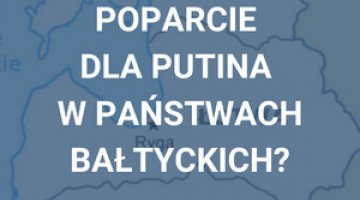Lithuania closes its border with Belarus for a month
On 29 October, the Lithuanian government decided to close the country’s two remaining open border crossings with Belarus – at Medininkai and Šalčininkai – until 30 November. The restrictions, which apply to both passenger and freight traffic, will primarily affect citizens of Belarus and Russia. They may be extended if the regime in Minsk continues its hostile actions against Lithuania.
Since 21 October, dozens of meteorological balloons carrying consignments of cigarettes have been crossing into Lithuania from Belarus. Vilnius regards this smuggling operation as being orchestrated by the Minsk regime, similarly to the migrant attacks on the borders of Lithuania, Latvia, and Poland that have been ongoing since 2021. Owing to the danger posed to air traffic, flights at Vilnius Airport were suspended on four occasions in recent days and once at Kaunas Airport, resulting in the cancellation of 140 flights in total and affecting more than 20,000 passengers. The Lithuanian authorities fear that international carriers may begin to avoid the country. The Belarusian balloons also pose a threat to military aviation.
In response, Belarusian Foreign Minister Maxim Ryzhenkov stated that ‘Vilnius is pursuing an anti-Belarusian policy’, arguing that the escalation of the crisis is motivated by ‘a desire to obtain EU funding. Alyaksandr Lukashenka, for his part, described Lithuania’s decision as ‘absurd’, downplaying the issue of cigarette smuggling via balloons. Minsk also accused the Lithuanian authorities of failing to inform it through diplomatic channels of their actions. Lithuania’s decision to temporarily close the border and refrain from any negotiations with Minsk signals a zero-tolerance stance towards further hybrid attacks from Belarus. It is intended to demonstrate Lithuania’s determination to safeguard its borders and to counter attempts by hostile neighbouring states to undermine public order.
Commentary
- The one-month closure of the border indicates that Lithuania does not seek to escalate the conflict with Minsk but rather aims to secure unconditional support from the EU and NATO. Vilnius intends to use this period for diplomatic engagement and to develop a coordinated strategy for deterrence and border protection. Talks are being conducted primarily with Poland – which, in a gesture of support for its neighbour, will postpone for several weeks the reopening of its two closed border crossings with Belarus (Bobrowniki and Kuźnica) – as well as with Latvia, Estonia, and other allied states. Lithuania seeks to persuade its partners to adopt tougher measures against Minsk, including new economic sanctions, and to introduce additional instruments of pressure, such as blocking Belarusian transit to and from Kaliningrad Oblast and restricting the rail transit of Belarusian goods. In the meantime, operations at the Šalčininkai border crossing have been fully suspended, while the Medininkai crossing remains open only to diplomats, diplomatic couriers, and travellers to and from Kaliningrad Oblast holding simplified transit documents. The border may also be crossed by citizens of Lithuania and of EU, EEA, and NATO member states, as well as by foreign nationals holding temporary residence permits in Lithuania or humanitarian visas. The remaining four crossings with Belarus had already been fully closed earlier – at Šumskas and Tverečius on 18 August 2023, and at Lavoriškės and the Raigardas border point on 1 March 2024.
- The deterrence policy applied towards Minsk is also intended to dissuade Moscow from undertaking aggressive actions or from provoking Vilnius. Russia has already exploited the closure of Lithuania’s border with Belarus in its propaganda campaign against Lithuania. According to the Kremlin’s narrative, Vilnius seeks to isolate Belarus and ‘occupy’ Kaliningrad Oblast. In response, Lithuanian Foreign Minister Kęstutis Budrys announced the possible suspension of Russian transit to and from Kaliningrad through Lithuanian territory – a route governed by an EU–Russia agreement that Vilnius accepted upon acceding to the EU. Budrys argued that no agreement concluded in peacetime can restrict a state’s national security measures when its security is under threat. It can therefore be expected that, in Lithuania’s consultations with its allies on intensifying pressure on Minsk, the issue of Russian transit to and from Kaliningrad Oblast will be among the key topics – particularly since EU institutions have so far insisted that Vilnius continue to respect the existing agreement.
- The regime in Minsk has deliberately provoked yet another crisis in its relations with Lithuania. In a totalitarian system, it is impossible for cigarette smugglers to operate independently and conduct large-scale smuggling using balloons – particularly in a border area under strict surveillance by the security services. The trade in tobacco products, including cross-border smuggling, has long been controlled by Lukashenka’s inner circle and generates significant profits. The use of balloons has therefore become another instrument in the ongoing hybrid warfare against Lithuania, conducted with Moscow’s consent. The regime’s aggressive reaction to Vilnius’s decision indicates that its objective is to discredit Lithuania as a state incapable of dialogue, including on the issue of restoring full border traffic. The border closures also pose a challenge for Belarusian road carriers (as most rail freight between China and the EU passes through Terespol), who will likely begin redirecting their vehicles to the currently open border crossings with Poland.
APPENDIX
Difficulties in neutralising the smuggling balloons
Although the military has been authorised to shoot down the balloons, Lithuania currently lacks the practical means to employ kinetic weapons to prevent their incursion into its airspace. The balloons are carried by the wind at high altitudes, beyond the range of both military rifles and hunting weapons. Attempts to bring down balloons carrying loads of approximately 40 kilograms using specialised equipment would be dangerous for residents and could cause property damage. The military also cannot be certain what type of cargo a particular balloon is transporting – it may contain contraband goods, but also potentially hazardous or explosive substances. While Lithuanian authorities continue to seek effective means of neutralising the balloons, their current focus is on dismantling the criminal networks operating within the country. Lithuanian prosecutors have been investigating similar cases of cigarette smuggling using balloons for some time; in the first nine months of 2025 alone, 500 such incidents were recorded – considerably more than in the entire previous year. Until now, these incidents had not disrupted air traffic, although they did pose safety risks – for example, when a balloon landed on a street in Vilnius among cars. The Lithuanian government has announced plans to amend the Criminal Code to tighten penalties for smuggling – introducing not only fines but also custodial sentences.





